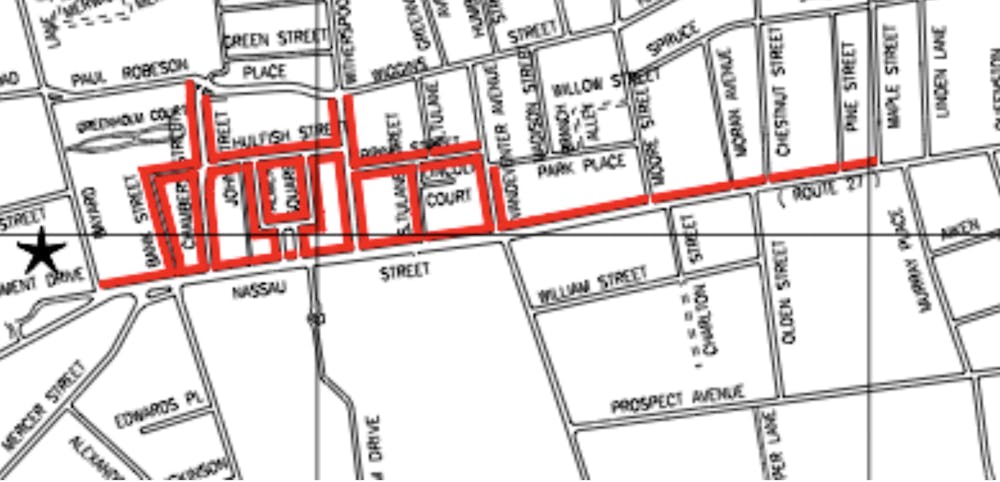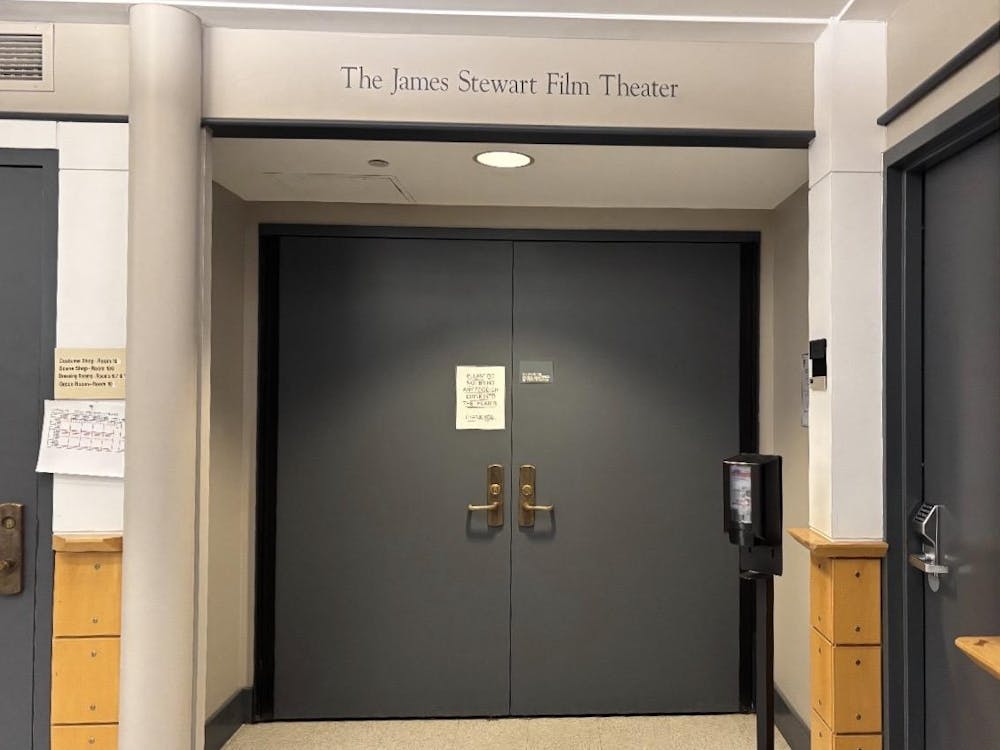The University will be cracking down on the use of personal electric vehicles (PEVs) this academic year. While stopping short of an outright ban, a campus message issued on Friday, Aug. 18 introduced sweeping new restrictions. According to the new policy, PEVs including scooters, bikes, hoverboards, and electric skateboards will be prohibited during “peak hours” of 7:30 a.m. through 4 p.m. on weekdays within a “designated zone.”
The zone encompasses the vast majority of campus, bound North to South by Nassau Street and Faculty Road and East to West by Alexander Road and Fitzrandolph Road.
According to the campus message, this tightened policy comes after a “formal review” conducted by the Environmental Safety and Risk Management Committee (ESRM). The University cites student body growth, increased use of PEVs, and reduced accessibility to pathways due to construction as exacerbating factors.
“The ESRM has concluded that the University’s infrastructure cannot safely accommodate the increasing usage of PEVs on campus without applying certain restrictions,” the message reads. “The Committee recognizes that this could be both disappointing and inconvenient to current users of PEVs and asks for your compliance with this new policy.”
The message also cautions that failure to comply “could result in a full prohibition of PEVs on campus.” Non-compliant vehicles will be impounded, and repeat-offenders may be reported to the Office of the Dean of Undergraduate Studies, the Graduate School, Human Resources, Dean of the Faculty, or other appropriate entities for additional disciplinary actions.
Several peer institutions have also recently tightened PEV policy. The Harvard Crimson and The Daily Pennsylvanian both reported heightened enforcement of restrictions on e-vehicle use on their campuses last spring. Boston College and Fordham College banned PEVs entirely during the 2022-23 academic year.
Princeton follows not only the trend in academia, but also local efforts to control the use of micromobility devices, including bicycles, skateboards, and rollerskates, in town. Last December, Princeton Town Council unanimously passed an amendment to an ordinance prohibiting their use in a zone of downtown Princeton, including on Witherspoon Street, between Nassau Street and Paul Robeson Place, the north side of Nassau Street between Bayard Lane and Maple Street, and Palmer Square.

Zones in Princeton where the use of bikes, skateboards, and roller skates are prohibited.
Courtesy of David Cohen

The resulting increased enforcement of a $50 fine received pushback from students throughout the spring, who claimed they hadn’t been properly informed of the municipal amendment.
The University’s previous policy was adopted in Feb. 2020, and permitted registered devices on all University roads, walks, and pathways with the requirement that riders yield to pedestrians at all times.
The revised policy will change on-campus transportation for many: According to data from the 2023 senior survey, 6.3 percent of respondents reported using a scooter to navigate campus at least some of the time.

Certain groups, such as athletes, who use PEVs at heightened rates to access far-away facilities, may be particularly affected by longer, on-foot commutes. Indeed, an FAQ page on the new policy forebodes disruptions to student life with questions like: “What if I can’t get to class/practice/activities on time?”
According to the webpage, the Committee on Classrooms and Schedule is “exploring the expansion of passing time to 15 or 20 minutes” but notes that “change is not expected during the 2023-24 academic year.”
The campus message provides more information about how the University intends to support students through this adjustment, promising “continuous updating of temporary wayfinding around construction activities,” “piloting an earlier start to late lunch at Frist Food Gallery on weekdays to allow students more time to eat lunch between classes,” “improving TigerTransit routes and frequency, and deploying new technologies such as real-time arrival screens,” and “investing in longer-term projects to create safe, multi-modal corridors across campus.”
When asked last March if the University intended to join the town in further restricting use of vehicles like e-scooters, Director of Transportation and Parking Services Charles Tennyson wrote in a statement to The Daily Princetonian, “We believe there’s less to do about regulation right now, and much more to do about conversation.”
“The University does not wish to surprise students with any new or significant change in policy, institute needless regulations, or limit mobility options for students or the broader University community,” he wrote.
Despite this statement, discussions surrounding the policy change were not made public prior to the announcement on Aug. 18, just one week before its scheduled implementation on Aug. 25, and just over two weeks before classes start on Sep. 5.
Tess Weinreich is an associate News editor for the ‘Prince.’
Please send any corrections to corrections[at]dailyprincetonian.com.








